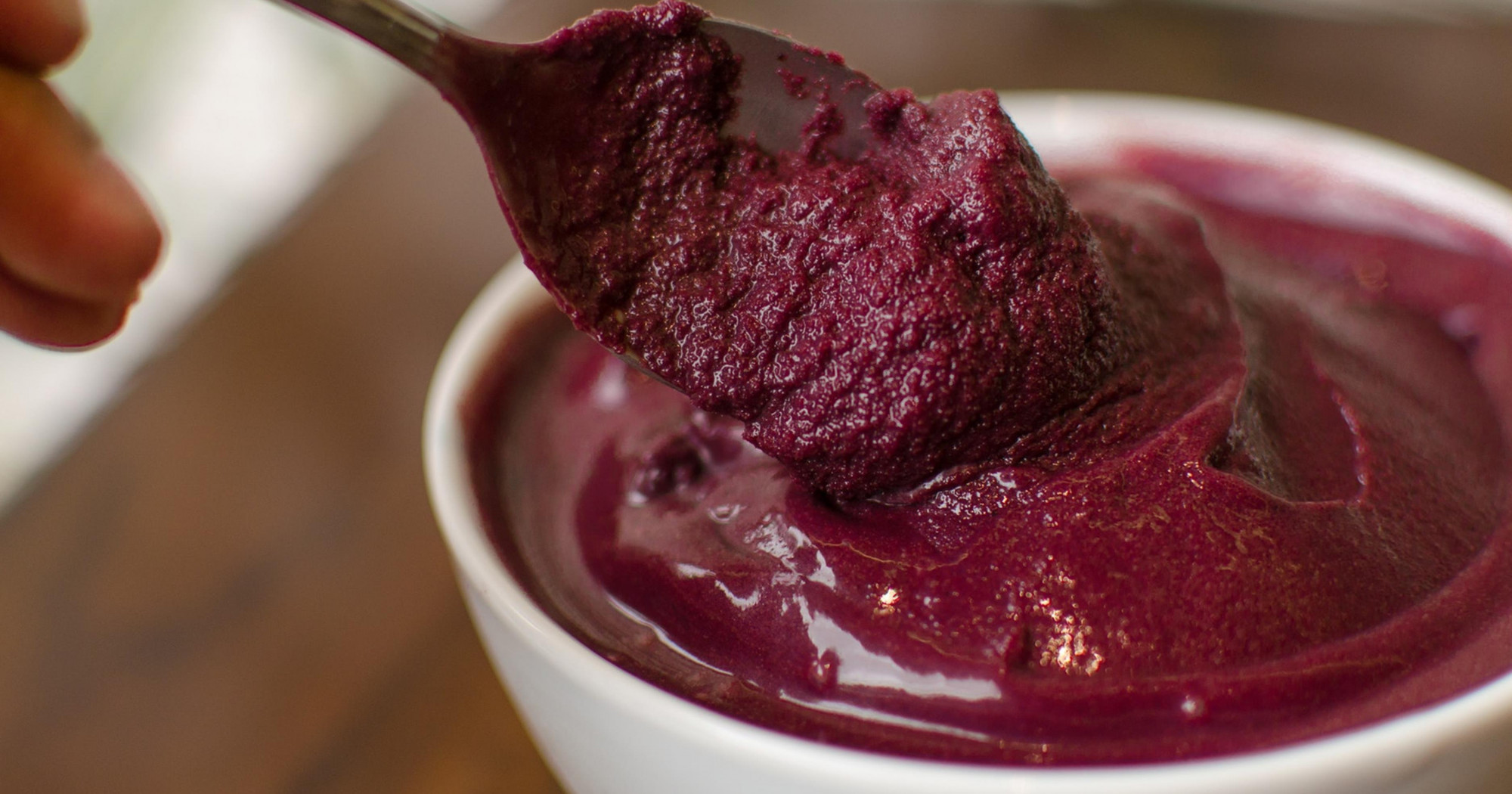Acai

Acai – or correctly açaí – berries have been labelled a superfood and added to snacks, smoothies, supplements and beauty products. Are they truly special or is it all just one big hype?
The acai berry is a dark, purple fruit, similar in appearance to a grape. They grow in huge clusters on acai palms native to Central and South America and because they are fairly fragile, they need to be freeze dried and ground into a fine powder or turned into juice or pulp straight after harvesting.
What makes acai berries so special is the high antioxidant content. Antioxidants are natural compounds that protect your cells and DNA from damage. A diet high in antioxidants helps to strengthen your immune system, slows down the ageing processes and offers protection from a range of degenerative diseases. Acai berries are high in a particular type of antioxidants – anthocyanins – which are also responsible for the dark red/blue pigmentation of the fruit.
Acai is recognised as a food with one of the highest antioxidant content, more than twice that of blueberries and nearly ten times more than grapes.
Heart health
Antioxidant-rich foods are beneficial for your heart health and circulation because they protect blood vessels from damage – but they also prevent cholesterol in your blood from oxidation. It is only when cholesterol is oxidised that it becomes sticky, enabling it to build up in your arteries, creating damaging plaques. There are, however, no magical cures – it is a healthy diet with plenty of fresh foods that matters most and a bit of acai can’t cancel out a poor diet!
Cancer
There have been claims that acai might have anti-cancer properties. Scientists have put this to the test, looking at the effect of acai extract on cancer cells in several studies. Results showed that acai caused an increased number of cancer cells to die in leukemia, colon and breast cancer lines. Although promising, these experiments offer hope that acai can help prevent cancer or aid recovery but is not a cure.
Immune system
Thanks to its high antioxidant content, acai can boost the functioning of your immune system and in several experiments, it improved white blood cells’ ability to fight infection. In combination with a healthy, vegan diet, acai might also help asthma sufferers as asthma is an inflammatory condition and the powerful acai antioxidants may help reduce inflammation.
Diabetes
Another claim made for acai is that it can help diabetics. And it turns out that it might be true. In a study of overweight people, participants ate 100 grams of acai pulp twice a day for a month and it improved their blood sugar control and reduced cholesterol levels. These are both very desirable outcomes for diabetics. Mind you, a wholesome vegan diet has been shown to have the same effect.
Weight loss
As with any new ‘superfood’, the weight-loss industry hasn’t wasted any time and has started adding acai to various products and ascribing to it miraculous properties. The truth is that acai contributes to overall health but it doesn’t help you burn more calories.
Everyday health
Acai powder and pulp contain healthy fibre, essential fats, protein, vitamins A, B1, B2, B3, C and E, calcium, magnesium, zinc and copper. These are all, of course, important nutrients and can help to improve your health and fitness … but remember, the amount of acai used as an ingredient is fairly small so you can’t rely on it as a major source of nutrition.
Products and prices
Acai is expensive simply because berries have to be freeze dried or turned into pulp within 24 hours to retain their nutritional properties. Freeze-dried acai powder and pulp contain all the above nutrients but that is not the case with ‘acai extract’ or juice.
Freeze drying dehydrates the berries, which are then ground into a powder and it is the best method of preserving the nutrients. It also provides a practical solution as the powder can be easily packaged and transported, which is why you are most likely to come across acai powder sold in pouches or tubs. In this form, it can make a great addition to smoothies, muesli or dessert.
Frozen acai pulp or puree also preserves nutrients well and is great for making smoothies, sorbets and ice creams and a range of desserts.
‘Acai extract’ usually means that the product contains acai antioxidants but none of the other beneficial nutrients.
The term ‘acai juice’ can mean different things. If the juice is made from whole berries and not heat treated, it’s likely to be fairly nutritious. However, many juices and acai drinks are made from concentrate, which can be highly processed and contain very little in terms of nutrition.
When it comes to acai supplements, they’re essentially powdered acai in a capsule or acai extract mixed with bulking agents – either way, you’re better off with a couple of teaspoons of the freeze-dried powder instead. You get more nutritional benefit from it and it’s cheaper than the supplements.
‘Acai Tea’ contains very little in the way of nutrients and the main characteristic is probably its acai flavour. Don’t buy into this marketing ploy unless it’s simply the taste you’re after!
What’s the verdict?
Acai may be a beneficial addition to your diet but the small amounts in which it’s consumed means it won’t significantly contribute to your overall nutrient intake. In specific cases, it may help manage some conditions, such as asthma and diabetes, and it may boost your immune system but it’s not a miracle food that can undo damage done by an unhealthy diet.
If you fancy trying acai – or it already is a part of your diet – look for organic and fair-trade products because as with any foods, it’s important to support sustainable and ethical farming.




